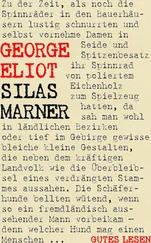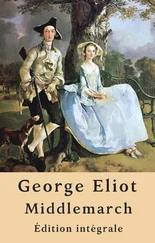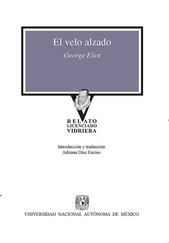George Eliot - Felix Holt, the Radical
Здесь есть возможность читать онлайн «George Eliot - Felix Holt, the Radical» — ознакомительный отрывок электронной книги совершенно бесплатно, а после прочтения отрывка купить полную версию. В некоторых случаях можно слушать аудио, скачать через торрент в формате fb2 и присутствует краткое содержание. Жанр: foreign_antique, foreign_prose, на английском языке. Описание произведения, (предисловие) а так же отзывы посетителей доступны на портале библиотеки ЛибКат.
- Название:Felix Holt, the Radical
- Автор:
- Жанр:
- Год:неизвестен
- ISBN:нет данных
- Рейтинг книги:3 / 5. Голосов: 1
-
Избранное:Добавить в избранное
- Отзывы:
-
Ваша оценка:
- 60
- 1
- 2
- 3
- 4
- 5
Felix Holt, the Radical: краткое содержание, описание и аннотация
Предлагаем к чтению аннотацию, описание, краткое содержание или предисловие (зависит от того, что написал сам автор книги «Felix Holt, the Radical»). Если вы не нашли необходимую информацию о книге — напишите в комментариях, мы постараемся отыскать её.
Felix Holt, the Radical — читать онлайн ознакомительный отрывок
Ниже представлен текст книги, разбитый по страницам. Система сохранения места последней прочитанной страницы, позволяет с удобством читать онлайн бесплатно книгу «Felix Holt, the Radical», без необходимости каждый раз заново искать на чём Вы остановились. Поставьте закладку, и сможете в любой момент перейти на страницу, на которой закончили чтение.
Интервал:
Закладка:
"Byron's Poems!" he said, in a tone of disgust, while Esther was recovering all the other articles. "'The Dream' – he'd better have been asleep and snoring. What! do you stuff your memory with Byron, Miss Lyon?"
Felix on his side, was led at last to look straight at Esther, but it was with a strong denunciatory and pedagogic intention. Of course he saw more clearly than ever that she was a fine lady.
She reddened, drew up her long neck, and said, as she retreated to her chair again —
"I have a great admiration for Byron."
Mr. Lyon had paused in the act of drawing his chair to the tea table, and was looking on at this scene, wrinkling the corners of his eyes with a perplexed smile. Esther would not have wished him to know anything about the volume of Byron, but she was too proud to show any concern.
"He is a worldly and vain writer, I fear," said Mr. Lyon. He knew scarcely anything of the poet, whose books embodied the faith and ritual of many young ladies and gentlemen.
"A misanthropic debauchee," said Felix, lifting a chair with one hand, and holding the book open in the other, "whose notion of a hero was that he should disorder his stomach and despise mankind. His corsairs and renegades, his Alps and Manfreds, are the most paltry puppets that were ever pulled by the strings of lust and pride."
"Hand the book to me," said Mr. Lyon.
"Let me beg of you to put it aside till after tea, father," said Esther. "However objectionable Mr. Holt may find its pages, they would certainly be made worse by being greased with bread-and-butter."
"That is true, my dear," said Mr. Lyon, laying down the book on the small table behind him. He saw that his daughter was angry.
"Ho, ho!" thought Felix, "her father is frightened at her. How came he to have such a nice-stepping, long-necked peacock for his daughter? but she shall see that I am not frightened." Then he said aloud, "I should like to know how you will justify your admiration for such a writer, Miss Lyon."
"I should not attempt it with you, Mr. Holt," said Esther. "You have such strong words at command that they make the smallest argument seem formidable. If I had ever met the giant Cormoran, I should have made a point of agreeing with him in his literary opinions."
Esther had that excellent thing in woman, a soft voice with clear fluent utterance. Her sauciness was always charming because it was without emphasis, and was accompanied with graceful little turns of the head.
Felix laughed at her thrust with young heartiness.
"My daughter is a critic of words, Mr. Holt," said the minister, smiling complacently, "and often corrects mine on the ground of niceties, which I profess are as dark to me as if they were the reports of a sixth sense which I possess not. I am an eager seeker for precision, and would fain find language subtle enough to follow the utmost intricacies of the soul's pathways, but I see not why a round word that means some object, made and blessed by the Creator, should be branded and banished as a malefactor."
"Oh, your niceties – I know what they are," said Felix, in his usual fortissimo . "They'll go on your system of make-believe. 'Rottenness' may suggest what is unpleasant, so you'd better say 'sugar-plums,' or something else such a long way off the fact that nobody is obliged to think of it. Those are your roundabout euphuisms that dress up swindling till it looks as well as honesty, and shoot with boiled peas instead of bullets. I hate your gentlemanly speakers."
"Then you would not like Mr. Jermyn, I think," said Esther. "That reminds me, father, that to-day, when I was giving Miss Louisa Jermyn her lesson, Mr. Jermyn came in and spoke to me with grand politeness, and asked me at what times you were likely to be disengaged, because he wished to make your better acquaintance, and consult you on matters of importance. He never took the least notice of me before. Can you guess the reason of his sudden ceremoniousness?"
"Nay, child," said the minister, ponderingly.
"Politics, of course," said Felix. "He's on some committee. An election is coming. Universal peace is declared, and the foxes have a sincere interest in prolonging the lives of the poultry. Eh, Mr. Lyon? Isn't that it?"
"Nay, not so. He is the close ally of the Transome family, who are blind hereditary Tories like the Debarrys, and will drive their tenants to the poll as if they were sheep, and it has even been hinted that the heir who is coming from the East may be another Tory candidate, and coalesce with the younger Debarry. It is said that he has enormous wealth, and could purchase every vote in the county that has a price."
"He is come," said Esther. "I heard Miss Jermyn tell her sister that she had seen him going out of her father's room."
"'Tis strange," said Mr. Lyon.
"Something extraordinary must have happened," said Esther, "for Mr. Jermyn to intend courting us. Miss Jermyn said to me only the other day that she could not think how I came to be so well educated and ladylike. She always thought Dissenters were ignorant, vulgar people. I said, so they were, usually, and Church people also in small towns. She considers herself a judge of what is ladylike, and she is vulgarity personified – with large feet, and the most odious scent on her handkerchief, and a bonnet that looks like 'The Fashion' printed in capital letters."
"One sort of fine-ladyism is as good as another," said Felix.
"No, indeed. Pardon me," said Esther. "A real fine-lady does not wear clothes that flare in people's eyes, or use importunate scents, or make a noise as she moves: she is something refined and graceful, and charming, and never obtrusive."
"Oh, yes," said Felix, contemptuously. "And she reads Byron also, and admires Childe Harold – gentlemen of unspeakable woes, who employ a hairdresser, and look seriously at themselves in the glass."
Esther reddened, and gave a little toss. Felix went on triumphantly. "A fine-lady is a squirrel-headed thing, with small airs, and small notions, about as applicable to the business of life as a pair of tweezers to the clearing of a forest. Ask your father what those old persecuted emigrant Puritans would have done with fine-lady wives and daughters."
"Oh, there is no danger of such mésalliances ," said Esther. "Men who are unpleasant companions and make frights of themselves, are sure to get wives tasteless enough to suit them."
"Esther, my dear," said Mr. Lyon, "let not your playfulness betray you into disrespect toward those venerable pilgrims. They struggled and endured in order to cherish and plant anew the seeds of a scriptural doctrine and of a pure discipline."
"Yes, I know," said Esther, hastily, dreading a discourse on the pilgrim fathers.
"Oh, they were an ugly lot!" Felix burst in, making Mr. Lyon start. "Miss Medora wouldn't have minded if they had all been put into the pillory and lost their ears. She would have said, 'Their ears did stick out so.' I shouldn't wonder if that's a bust of one of them." Here Felix, with sudden keenness of observation, nodded at the black bust with the gauze over its colored face.
"No," said Mr. Lyon, "that is the eminent George Whitfield, who, you well know, had a gift of oratory as of one on whom the tongue of flame had rested visibly. But Providence – doubtless for wise ends in relation to the inner man, for I would not enquire too closely into minutiæ which carry too many plausible interpretations for any one of them to be stable – Providence, I say, ordained that the good man should squint; and my daughter has not yet learned to bear with his infirmity."
"She has put a veil over it. Suppose you had squinted yourself?" said Felix, looking at Esther.
"Then, doubtless, you could have been more polite to me, Mr. Holt," said Esther, rising and placing herself at her work-table. "You seem to prefer what is unusual and ugly."
Читать дальшеИнтервал:
Закладка:
Похожие книги на «Felix Holt, the Radical»
Представляем Вашему вниманию похожие книги на «Felix Holt, the Radical» списком для выбора. Мы отобрали схожую по названию и смыслу литературу в надежде предоставить читателям больше вариантов отыскать новые, интересные, ещё непрочитанные произведения.
Обсуждение, отзывы о книге «Felix Holt, the Radical» и просто собственные мнения читателей. Оставьте ваши комментарии, напишите, что Вы думаете о произведении, его смысле или главных героях. Укажите что конкретно понравилось, а что нет, и почему Вы так считаете.












